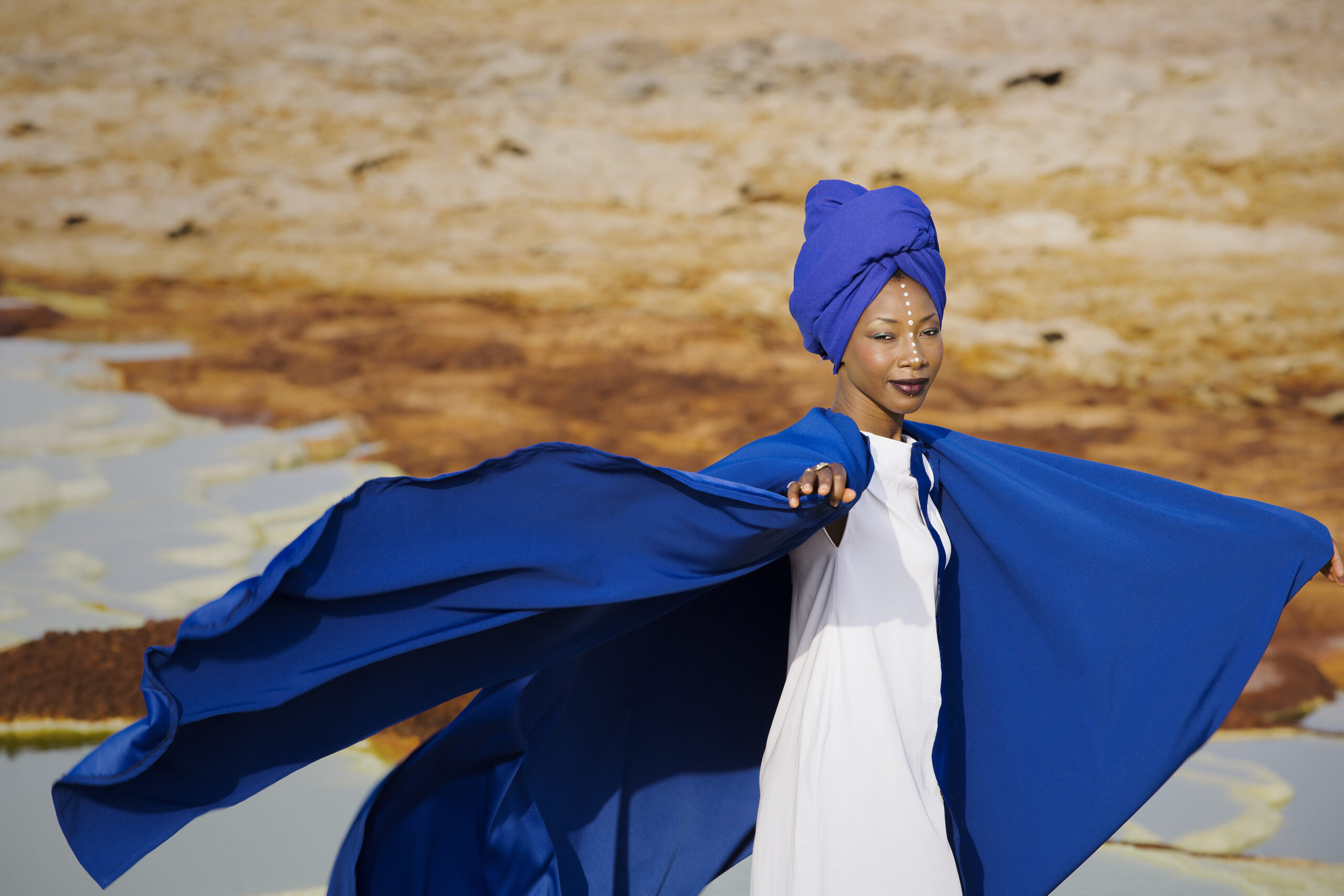This post is also available in:
The music of Fatoumata Diawara doesn’t pummel you with its power, yet it doesn’t quietly slip by either – and it certainly doesn’t meander in the mediocre middle of the two. So what is it about Diawara that has earned her two Grammy nominations, collaborations with legendary musicians ranging from Herbie Hancock to Paul McCartney, and a reputation as an in-the-making legend?
Born in Côte d’Ivoire and raised in southern Mali, Diawara left her West African home as a teenager and traveled alone to France to pursue an acting career. And while she did and still does appear in various films – 12 to date, including 2014’s Oscar-nominated Timbuktu – it’s her musical career as a singer-songwriter and guitarist that she developed in stride with acting that has propelled her into the spotlight most.
“With all my legacies, with all my background, I was needing to sing,” she says of her musical development in Paris. “I was needing to hear my power, to speak out, to express myself.”
Diawara is now one of the few African women music artists who performs solo. Often singing in her native Bambara language, she incorporates her region’s Wassoulou music – which is considered to be the one of the main harbingers of the blues – with groovy syncopations and smooth instrumentals for songs that are at once universal and deeply rooted in history, identity and place.
“Sometimes a song can be a very happy or simple subject – about love or your children – but when you’re singing it, your soul, your spirit has a pain,” she says. “Sometimes you’re talking about nothing, but in your voice, people can hear something very heavy. And that’s you.”
But her mission is not simply to have nice sounds land in listeners’ ears. Diawara sings for change, with lyrics telling stories about the present-day slave trade, inter-ethnic marriage, female genital mutilation, African heritage and gender equality. The title of her most recent album, Fenfo, translates into “say something” – and it irrefutably does just that. Her accompanying music videos, meanwhile, hypnotically bring listeners into the songs by setting the stories she tells set in surrealistic African landscapes, interspersed with Diawara, often dressed in goddess-like flowing fabrics, singing directly into the camera.
So what, then, is it about Diawara’s music that has such an effect? It’s velvety but strong, provocative but comforting. And most transcendently, one does not have to understand her words to know exactly what she’s trying to say.




